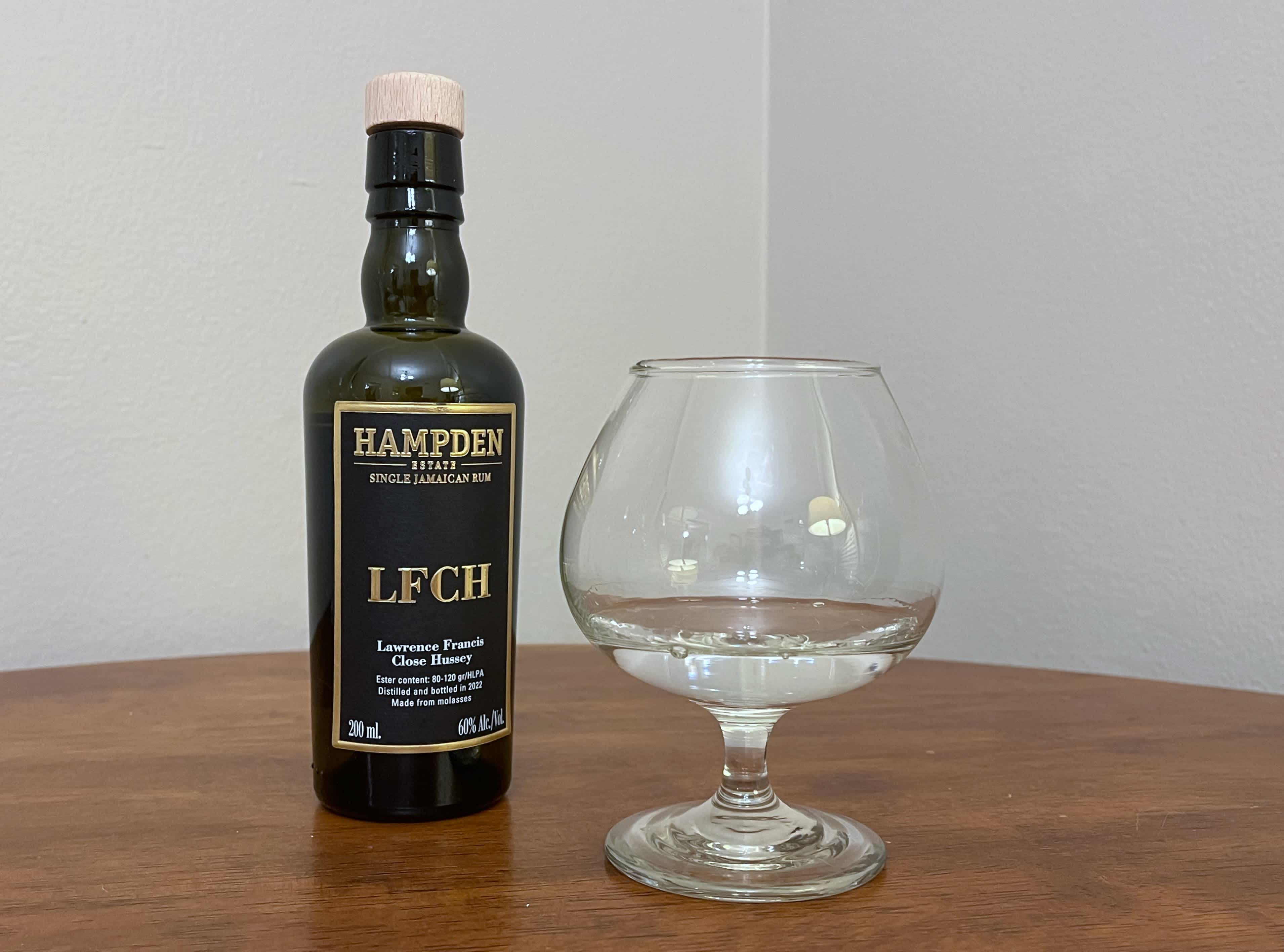Overview
Brand: Hampden Estate, 8 Marks series
Origin: Hampden Estate, Wakefield, Trelawny Parish, Jamaica
Still: Pot
Age: Unaged
Finish: n/a
ABV: 60%
The next bottle we're exploring in the Hampden 8 Marks Collection is LFCH, the second marque created by the Hussey family after taking ownership of Hampden Estate in 2009. Named for Lawrence Francis Close Hussey– the grandfather of current marketing director Christelle Harris, the marque ranges from 80-120 g/hLAA in esters.
Like OWH, LFCH only utilizes molasses and water in the fermentation process, which is set at 4 days, the longest of any marque under 1,000 g/hLAA of esters; it yields a wash that is 5% ABV. Then, it is sent through a double retort pot still, resulting in a still-strength rum that measures 85.5-86.5% ABV.
The following Hampden Estate releases contain the LFCH marque: Great House 2021 (50% LFCH) and Great House 2022 (26.5% LFCH).
Appearance
Clear, medium viscosity
Nose
Underripe pineapple, permanent marker, model glue, pine needles, artificial banana
Palate
Underripe pineapple, banana, model glue, mango, roasted red pepper
Finish
Long, fruity, hot; banana peel, model glue, classic bubblegum, menthol
Rating: 5/10
Summary
LFCH seems to eschew excess fruits for more chemical influence, and although it's not a gigantic leap in its ester range from OWH, there's a bit more complexity in this pour. Pineapple, banana, and a hint of mango are the only true fruity notes I get throughout the experience, with roasted red pepper bringing some savory-sweetness on the palate.
Otherwise, my senses get dominated by permanent marker and model airplane glue on the nosing and palate; the nose also gives some nice pine needle aromas after some breathing. On the finish, an airy menthol note develops near the end, and classic bubblegum comes through after adding a few drops of water.
Several reviewers and commenters on Hampden rum mention "glue" in their notes, and I think LFCH is a likely suspect, as it has that in droves. As a standalone rum, I think LFCH does hit some highlights, but as an unaged expression, doesn't quite hit the complexity I look for in order for it to be great. Still, this is another great look at the inner workings of Hampden's blending toolkit.
